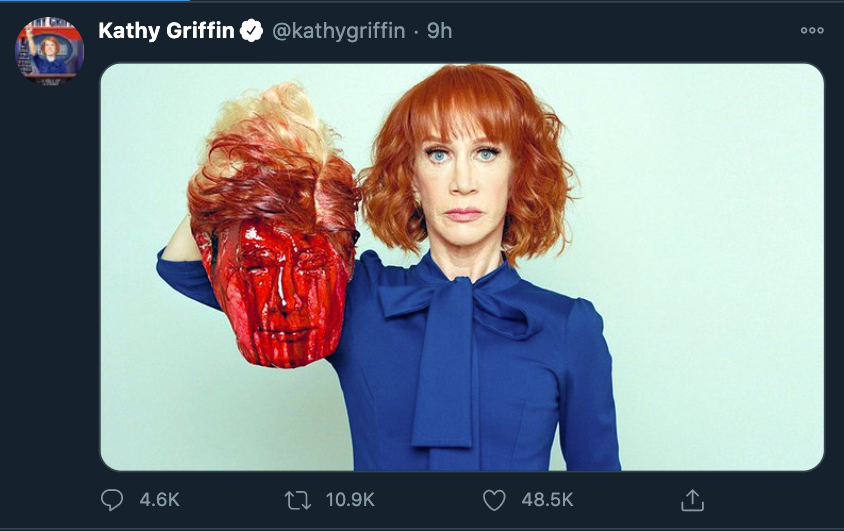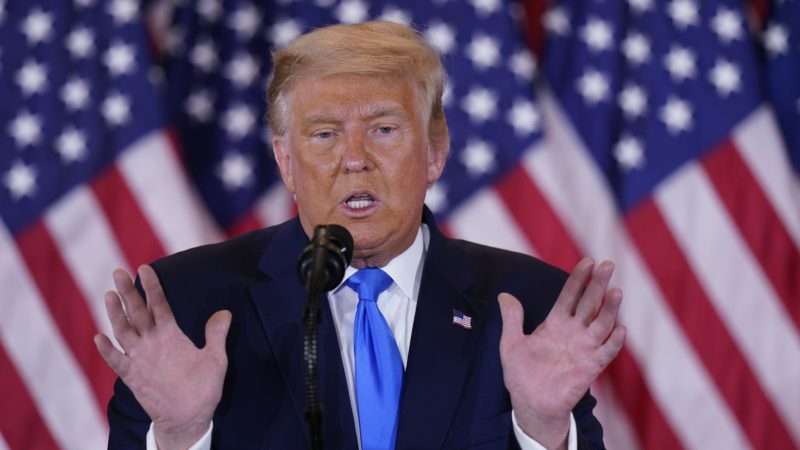When Donald Trump pulled off a stunning upset and won the presidency in 2016, few people were more shocked than the professional take-havers in the mainstream media. Pundits, journalists, and political strategists—who live in Washington, D.C., or New York City but seldom leave their Twitter bubbles—were totally blindsided by the fact that a crass reality TV star had managed to defeat Hillary Clinton, the embodiment of the Democratic establishment.
A healthy media might have learned from its mistakes, engaged in soul-searching, and tried to gain some insights into the working-class coalition that Trump had assembled. Clearly, this didn’t happen, because four years later—in the midst of a nail-bitingly close election—the predictions of the pundit class have proven to be no more accurate than they were in 2016. In fact, by some measures the experts performed even worse than last time: The pre-election polls, which suggested a landslide Biden victory, Democratic control of the Senate, and gains in the House, are so spectacularly wrong it calls the validity of the profession into doubt.
To take just one example, Sen. Susan Collins (R–Maine), for instance, did not lead her Democratic challenger, Sara Gideon, in a single poll of the Maine senate race. She was thought to be losing by 5, 6, or 7 points. (Quinnipiac had her down 12 points in September.) On Wednesday afternoon, Gideon conceded the race, which Collins won easily.
And while Biden currently looks likely to narrowly eke out a presidential victory, he is underperforming the polls in several states. In 2016, pollsters could reasonably claim that the numbers actually showed a very close and ever-tightening race in battleground states like Michigan, Wisconsin, and Pennsylvania: Trump’s win, though surprising, wasn’t exactly outside the range of possible outcomes. This time, the public was primed for a blowout that never materialized.
This means, of course, that the mainstream media narrative about the “shy,” reluctant, or otherwise undercounted Trump voter—namely, that he does not exist—was completely, utterly, bafflingly wrong: Once again, Trump is more popular than the media thought was possible.
Perhaps more importantly, the media continues to be wrong about why Trump is popular, and about which people like him. Unable to admit that a Democratic Party held hostage by liberal arts graduates who write their preferred pronouns on their name tags might be out of touch with the working class voters who traditionally vote blue, many cable news talking heads settled on any number of alternative explanations: from Russian interference to lingering, perhaps resurgent, racism throughout the U.S. (CNN’s Van Jones called it a “whitelash” in 2016.)
Trump, though appears to have improved—albeit modestly—his totals with minority voters, including and especially Latino voters. The narrative that Trump’s divisive rhetoric about foreigners and immigrants renders him completely toxic to minority voters just doesn’t match the reality. Indeed, the results thus far suggested that the racial gap—at least for Latinos—is shrinking, and class and educational attainment are becoming more salient considerations than race.
It’s unfortunate that many within the media—including and especially the prognosticators—continue to get things so wrong. Massive polling errors are bad for cultivating a well-informed citizenry, as David Graham argues in The Atlantic:
Without reliable sources of information about public opinion, the press, and by extension, the public, should perhaps employ a measure of humility about what we can and can’t know in politics. As wise as this may be—and even if people manage to act on it—that sort of epistemic humility risks falling prey to the same asymmetrical warfare that has characterized much of the Trump era. At the moment, the leader of the Republican Party is an authoritarian populist who claims to represent the “true” will of the people, despite losing the popular vote twice. The president is unlikely to exercise any such humility in claiming, without evidence, that public opinion is with him. He might be wrong, but without reliable polls, who’s to say otherwise?
Given the narrowness of Biden’s presumed victory, it seems unlikely that Trumpism has been dealt anything resembling a death blow. The GOP will have little reason to shun Trump; on the contrary, given the results in 2016, 2018, and now 2020, one could make the case that the Republican Party performs better with Trump’s name on the ballot than without it. Those in the mainstream media who continue to fail to understand Trump aren’t going to get off easy: They just plain have to get better at this, or they will continue to lose ground to their challengers in the alternative media.
Several people who fall into this latter category—which includes a bevy of populism-sympathetic podcasters and upstart policy advocates—were recently profiled in The Federalist. Publisher Ben Domenech and culture editor Emily Jashinsky call them the new contrarians, or “the New Contras for short, because the one thing they all have in common is refusing the wokeness that dominates legacy media, and has created a practically religious climate of insufferable identity politics.” They cite Glenn Greenwald and Katie Herzog as two such New Contras: Both were solid journalists of the left, gradually chased out of respectable leftwing journalism spaces for disagreeing with mainstream orthodoxy.
Institutions like The New York Times and The Atlantic have grown much more squeamish about inviting dissenters into their midst. Publications are now occasionally beholden to staffers who think it’s the job of journalists to run interference for the Democratic Party and hide stories from readers if they could conceivably help Trump. Many young rising stars in the world of investigative reporting think newsrooms have wrongly prioritized objectivity and should move toward a kind of “moral clarity” that is likely to make their institutions even more confused about why millions of people—roughly half the country—have aligned themselves with Donald Trump.
As independent thinkers exit the mainstream media, groupthink and blind spots among the legacy press are likely to get worse. The result would be a travesty, and not an outcome anyone should want or root for.

from Latest – Reason.com https://ift.tt/32eWTLt
via IFTTT

 From Judge Roy B. Dalton Jr.’s opinion in
From Judge Roy B. Dalton Jr.’s opinion in 

